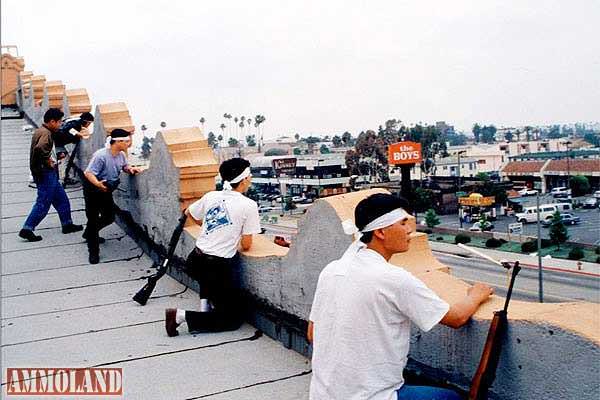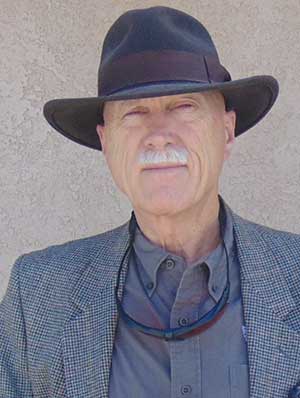By Dean Weingarten


Arizona – -(Ammoland.com)- A few days ago, on 21 January, Military.com White House Correspondent Bryant Jordan wrote an article about the Air Force reviewing its policies on allowing trained military personnel to carry concealed or openly, on and off duty, to supplement official guards and military police. From military.com:
The Air Force on Wednesday said its review of “active-shooter incidents across the country” found that many ended without police intervention because someone present with a weapon stopped the shooter.
(skip)
The Air Force also did not release the data showing how many active-shooter incidents were stopped by someone on the scene carrying a weapon. A spokeswoman said the data came from the FBI, and cannot be released by the Air Force.
Three days later, Mr. Jordan published another article that seemed an attempt to contradict or minimize the previous Air Force statement. From the second article on January 24th, Military.com:
FBI data on the number of active shootings thwarted by armed citizens appears to contradict an Air Force argument for authorizing off-duty airman to open-carry and conceal-carry weapons while on base…
But the data, which the Air Force said came from the FBI, states that only 5 of the 160 active-shooter incidents between 2000 and 2013 — or 3.1 percent — ended “after armed individuals who were not law enforcement personnel exchanged gunfire with the shooters.”
This is interesting for several reasons. First, because the Air Force made the correct call in the first place. Those who have been watching the active shooter situation know that many are stopped by armed people before responding police arrive. I detail 21 of those incidents in one of my most popular articles “Mass Killings Stopped by Armed Citizens“.
Second, the misleading parsing of the FBI study cited in the second article does not contradict the information in the first article.
“3.1 percent — ended “after armed individuals who were not law enforcement personnel exchanged gunfire with the shooters.”
Five incidents can certainly be “many”. Between 2000 and 2013, far less than 3% of the population had concealed carry permits. “Exchanging gunfire with the shooters” is a strange way to limit the participation of armed citizens. If we apply the same criteria to responding law enforcement in the study, law enforcement personnel “exchanged gunfire with the shooter” in only 28% of the incidents. Applying that criteria, armed citizens stopped 5 incidents, police stopped 45.
Using the studies own criteria, armed citizens were effective in 10% of the incidents where people “exchanged gunfire with the shooter”, not 3.1%.
That is only one example. The study has many flaws that show its biases. In one of the 5 cases above, the New Life Church incident, the volunteer church member who had a concealed carry permit is described as a “security guard”.
The case of the Appalachian school shooting is described as one where “unarmed citizens” restrained the shooter, without mentioning that two students at the scene retrieved guns and pointed them at the shooter; then he was tackled by other students. The armed students are only mentioned as “off duty law enforcement officers”.
In the study, they completely missed (or ignored) these shootings in only 2012:
April 24, 2012 Destiny Christian Center Shooting
Kiarron Parker rammed his car into another in the church parking lot, got out and attempted to kill multiple church members. He was only able to kill one before a member of the congregation, the nephew of the lady killed, and an off duty police officer, drew his handgun and shot Parker, stopping the killing.
29 July, 2012 Peach House shooting, Texas
In Early Texas, armed citizen Vic Stacy shot and stopped a deranged man who had just murdered two neighbors and was firing at police with a rifle. Stacy made a very long shot with his revolver, three times as far as the perpetrator was from the police officer, who had an AR-15 type rifle.
Vic Stacy was awarded a rifle and ammunition by Governor Perry for his valor in this incident.
Updated link to Peach House Shooting one Year Later
9 September, 2012 Plymouth PA shooting
Consider that the Plymouth shooting incident happened just three months before Sandy Hook. Mark Ktytor, a concealed carry permit holder, stopped a likely mass killing. From the citizensvoice.com:
“Mark Ktytor?” the latest in the stream of reporters asked, trying to put a face to the name of the man investigators credited with preventing a fatal bar shooting last weekend from escalating into a massacre.
The study ignores the concealed carry permit holder involvement in the Clackamas Mall shooting, simply characterising it as a case where the shooter “committed suicide before the police arrived”. Academic integrity should have required a footnote about the controversy of whether the shooter was deterred by the permit holder or not.
We can never know if the shooter at the Clackamas Mall decided to commit suicide because he was confronted by Nick Meli, the CCW holder, as the shooter is dead. However, many mass shooters commit suicide when they know that armed resistance is at hand.
If we ignore the Clackamas event, and include the other three 2012 events excluded by the study, and the two events involving armed citizens who were off duty peace officers of some type, we double the number of cases where armed citizens involved in the active shooter events “exchanged gunfire with the shooter” to 10, or 22% of the number where responding police “exchanged gunfire with the shooter”. Quite a difference in perspective about how armed people who are involved in active shooter incidents can be effective, isn’t it?
One has to wonder what events in the other 13 years of the study were excluded, ignored, or defined out of existence by the authors or their data selection process.
Another commentator sums up the 2014 FBI report this way:
Last fall, we noted that the FBI used bogus stats in its pre-election mass shooting report. Researchers counted some mass shootings that weren’t “mass” at all, and entirely omitted actual mass shootings that occurred early in the carefully selected timeframe. All of it was an effort to show an increasing trend of “gun violence” since 2000, we suspect in concert with Democrat campaign talking points about the necessity of gun control.
In the comments section at military.com, it is clear that military personnel are more informed about the subject than the general population. Here are a couple of comments:
From 3441058:
Don’t trust the FBI. It is after all a politically influenced group that does its best to support the bosses politics. So what really is “many”? The anti-gun people wont accept the facts that several shootings have been stopped by private people, packing privately owned guns. It harms the narrative of guns are bad, and people with guns are bad. They like to say, “If we can only stop one death, taking guns from the public will be worth it”. Except, individuals have interrupted mass shootings. The Tacoma Mall, Oregon Mall, Pearl High School, a college in Virginia and more. Using the logic of the anti-rights people should then apply. “If we can only save one life by allowing people to use guns for self defense, it is all worth it”. Seven states no longer require permits to carry. NO state should limit the use of guns for self defense.
James Smith
Think about it it says 3% so if more people had a weapon just maybe that percentage would be higher. The percentage is low because when crime happens very few people that are armed are in the location to change the stats
The FBI study is limited due to the definition used and the over looking of many short term events (seconds).
The events studied ended were from 2000 to 2013. Looking at the list of events studied we can easily see that several were missed:
The Aurora church shooting, Apr 2012: 2 killed outside church, shot down by church security officer.
Early, Texas, August 2012: man kills neighbors and opens fire on officer, shot dead by bystander
These are just a couple citizens stopping shootings, how many were over looked?
What caused the author, Bryant Jordan, to write the article designed to throw doubt on the remarks of an Air Force officer he quoted, just three days before?
He is military.com’s White House correspondent. Perhaps the White House was a little irked at the Air Force for putting out a message that contradicted the talking points on its gun control push? Maybe someone at the White House staff sent an email, “suggesting” that an article include the FBI study, for “balance”.
It would have been an easy article to write, given that most of the work had been done in the previous article. Who wouldn’t want to be owed a favor by the White House Staff?
c2016 by Dean Weingarten: Permission to share is granted when this notice is included. Link to Gun Watch
About Dean Weingarten;
Dean Weingarten has been a peace officer, a military officer, was on the University of Wisconsin Pistol Team for four years, and was first certified to teach firearms safety in 1973. He taught the Arizona concealed carry course for fifteen years until the goal of constitutional carry was attained. He has degrees in meteorology and mining engineering, and recently retired from the Department of Defense after a 30 year career in Army Research, Development, Testing, and Evaluation.
